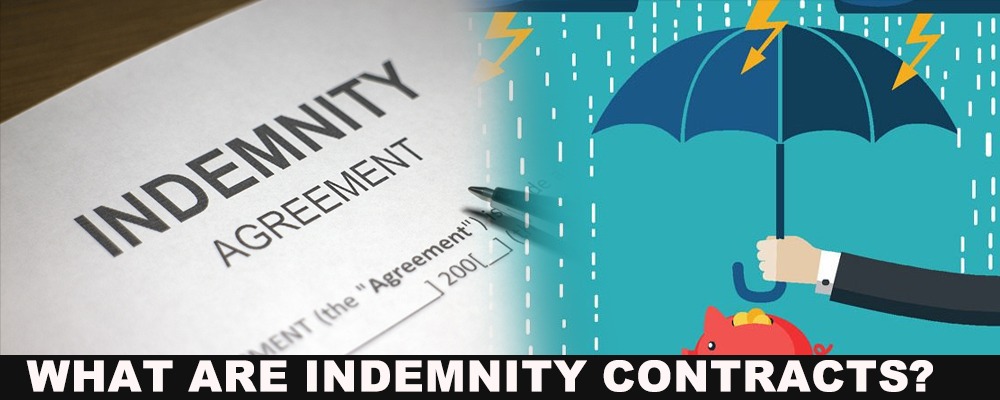Indemnity is defined as the compensation that protects you from potential losses. It means the payment of money to a party who has lost money or goods or any other products.
There are 2 parties involved in this, one party is “indemnifier” and the other party is “indemnity holder”
Indemnity Contracts are very similar to insurance contracts.
Nature:
An indemnity contract can be either expressed or implied. In other words, parties may expressly enter into such contracts as per their own terms. Implied indemnity duties may also be created by the nature of the circumstances. For example, X does an act at the request of Y. If Y suffers some losses and X offers to compensate him, they impliedly create an indemnity contract.
Need A Legal Advice
The internet is not a lawyer and neither are you. Talk to a real lawyer about your legal issue

Rights of Indemnity Holder:
- The indemnifier will have to pay damages when the indemnity holder will claim via suit.
- The indemnity holder has the right to compel the indemnifier to cover his legal fees.
- If the parties agree to legally compromise for suit, the indemnifier shall pay the compromise amount.
Essentials:
- There must be 2 parties.
- One Party promises to the other party for the loss to occur.
- Contracts may be expressed or implied.
- Must satisfy the essentials of valid contract
Indian Law Commission’s Commission:
- Modification of privity of doctrine required by third party to sue in such situations
- Change in doctrine of consideration, an obligation to hold bid open for indefinite period of time
- Recognition of principal of estoppel
- Making dependent agreements and wagering contracts illegal
- Fair restriction of right to carry on trade
- Concept of coercion are exhaustive in contracts
Lead India has expert lawyers who are well versed in drafting agreements keeping in mind the damages and how to claim the liability in which scenario. You can talk to lawyers of Lead India for any such query and take free legal advice regarding the same.





 Talk to a Lawyer
Talk to a Lawyer